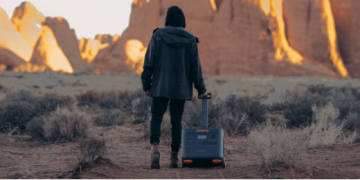It might be overwhelming and terrifying if you are in Pennsylvania and are being investigated for a crime. But if the police say they have video of you committing a crime on a cell phone, you may be worried about whether the government would use such evidence against you in court. Not to worry! Nobody anticipates you to be well versed on Pennsylvania’s rules of evidence. So, we’ll talk about how mobile phone evidence could be accepted in this blog article. For more information, check out josephlento.com.
When May Police do a Phone Search?
Your cell phone could be taken away by the police as part of the arrest procedure. The court won’t use any footage on your phone against you during the trial, so don’t worry about that. Your cell phone cannot be randomly searched by the police just because they desire to or because you were arrested. Instead, before inspecting your phone, the police must obtain a warrant or “meaningful permission,” which involves outlining your legal rights. However, even if they believe you may have proof of a crime on your phone, the police cannot just detain you on the street and search through your phone. It is crucial that you retain a knowledgeable Pennsylvania criminal defense lawyer as soon as possible after being detained.
Trial Cell Phone Evidence
Nowadays, cell phones are ubiquitous, making it possible for anybody walking the streets with one to record proof of a crime. But a judge may not accept a video as evidence in court merely because it purports to show you or another person committing a crime. The state must prove the following in order for it to be allowed as evidence in court:
- The video’s owner must confirm that it is genuine and that no alterations have been made. The owner of the video’s testimony in court can help the state prove this. The court will probably exclude the video as hearsay if the prosecutor cannot demonstrate its legitimacy.
- There Was Two-Party Consent: Under Pennsylvania’s wiretapping legislation, both parties must normally consent to the recording if the video includes audio and the proceedings are private. Although you might not have an expectation of privacy if the actions captured on camera occurred in public, a court could be more inclined to accept the video as evidence if they did.
Your attorney may bring up other issues with the video in court even if the state proves that you gave your agreement to the filming and that it is real. The context of a film frequently affects how we interpret it. Viewers may perceive it incorrectly if a video starts in the middle of an event or has subpar lighting or audio.








